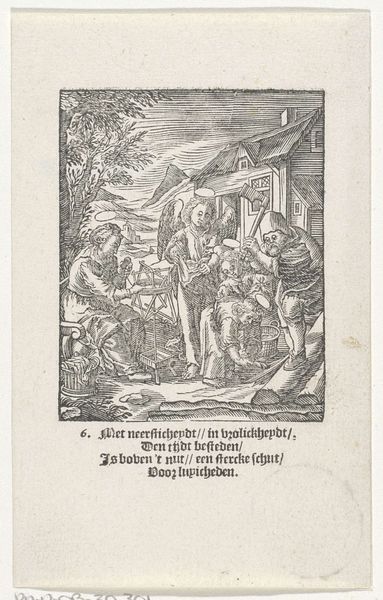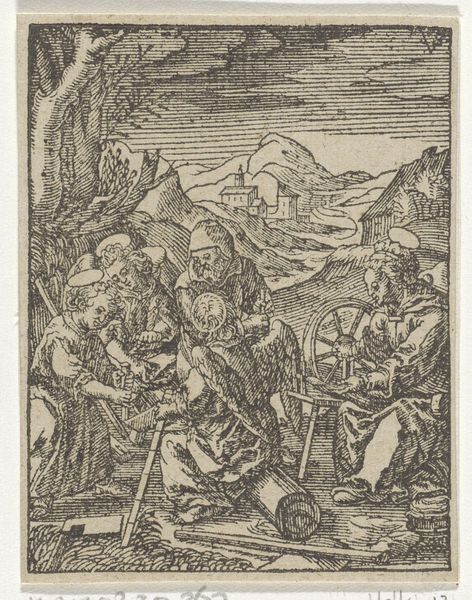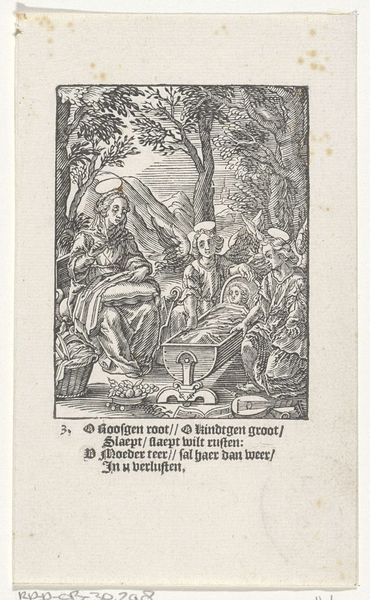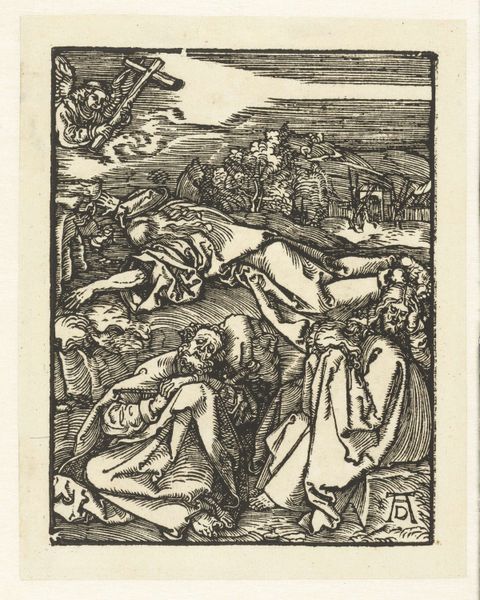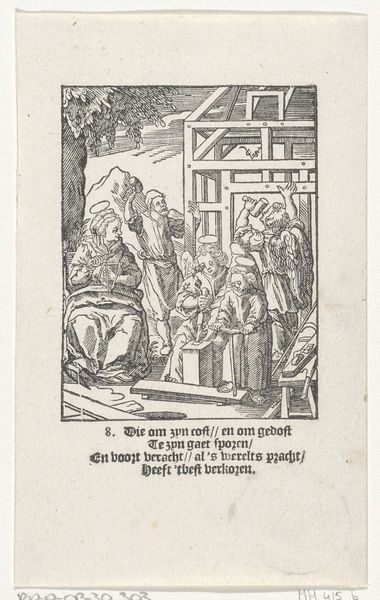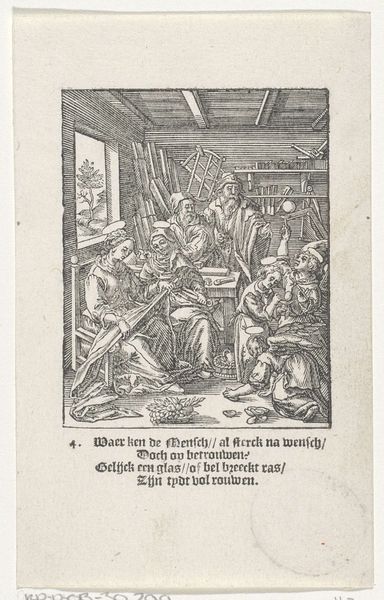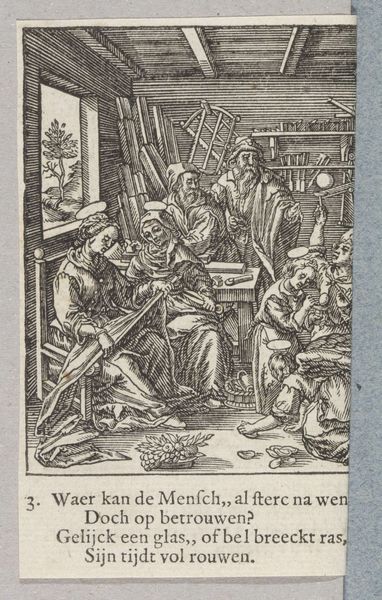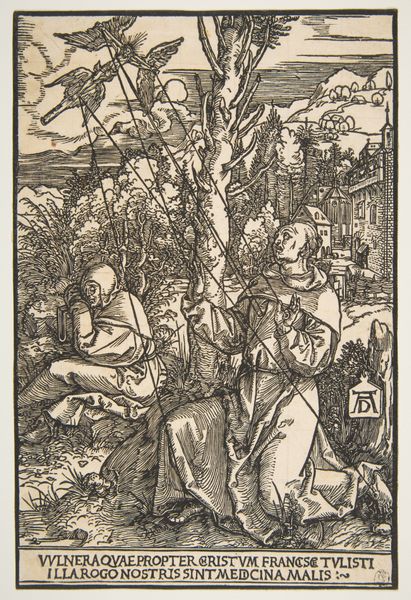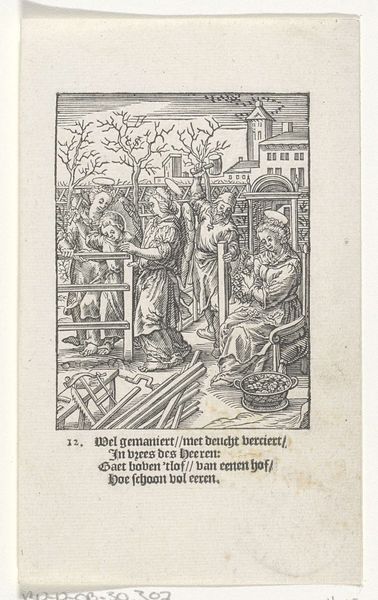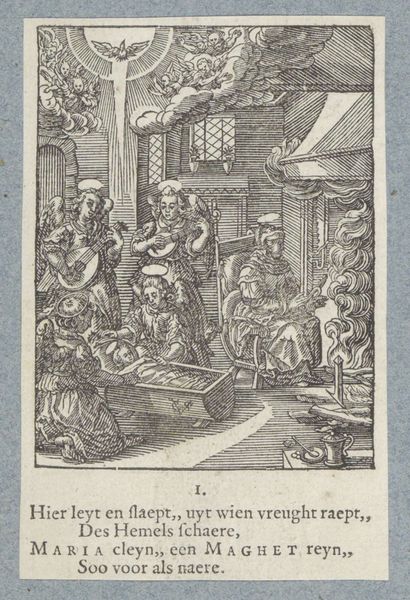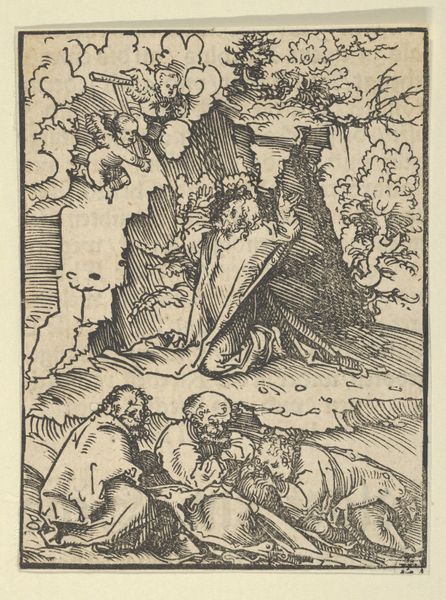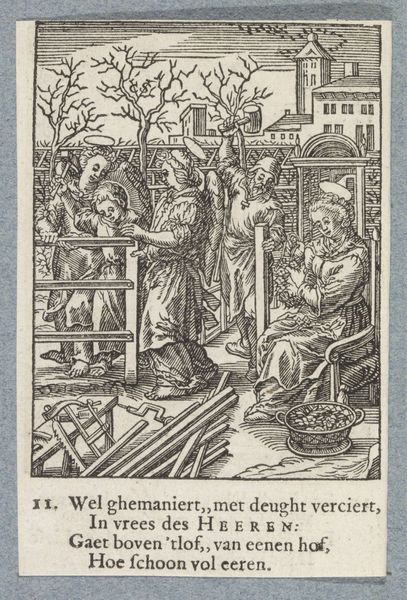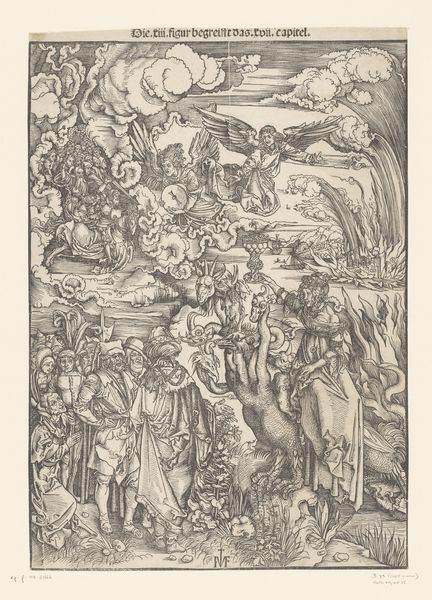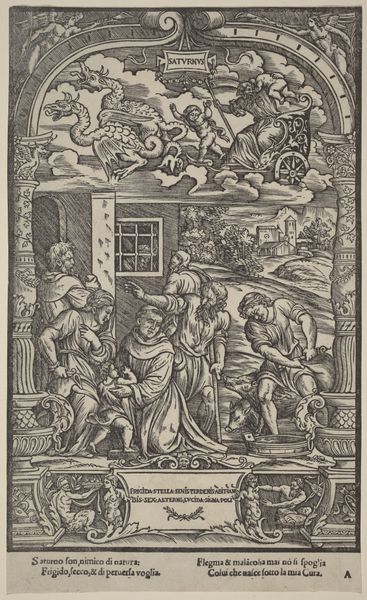
print, engraving
#
narrative-art
# print
#
old engraving style
#
figuration
#
line
#
genre-painting
#
northern-renaissance
#
engraving
Dimensions: height 136 mm, width 85 mm
Copyright: Rijks Museum: Open Domain
This is a woodcut by Christoffel van Sichem the Younger, titled "Christ Child Sawing a Log," made sometime between the late 16th and mid-17th century. The composition, rendered in stark black and white, arranges figures and landscape in a densely packed scene. The dominant texture is one of linear hatching, creating tonal variations and defining forms. This technique gives depth to the scene. The eye is drawn to the central figures laboring in what appears to be a domestic setting, yet the inclusion of winged figures gives the scene a celestial dimension. The act of labor, particularly by divine figures, destabilizes established meanings of the sacred and the mundane. The choice of woodcut, with its inherent graphic quality, is a conscious choice to engage with a tradition of printmaking. It challenges fixed meanings and encourages new ways of thinking about labor and the divine. The stark contrast of the woodcut aesthetic serves to create a discourse on the function and meaning of religious imagery in everyday life.
Comments
No comments
Be the first to comment and join the conversation on the ultimate creative platform.
